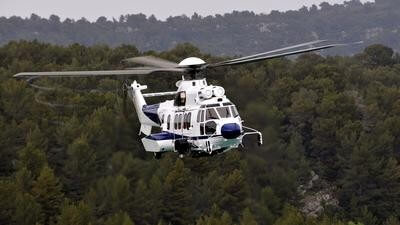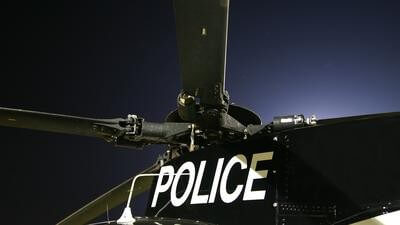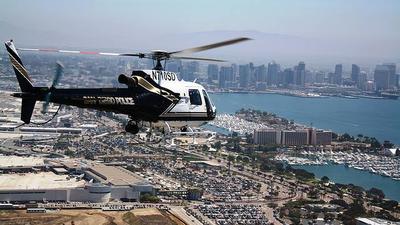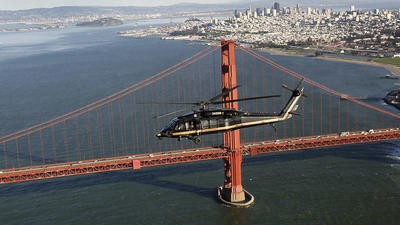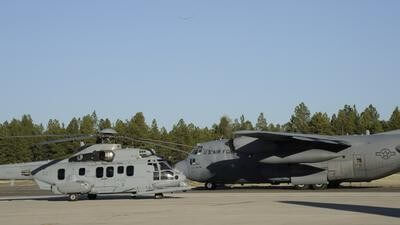Sharing experiences in crew resource management
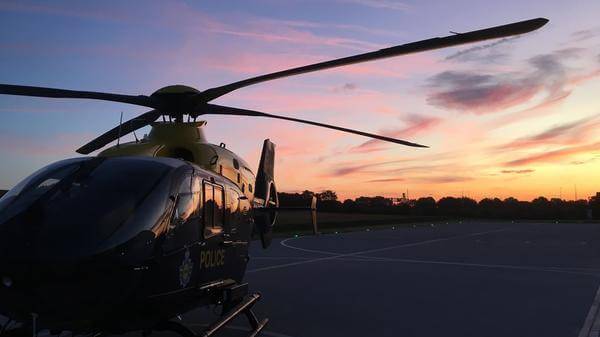
Rick London of the UK’s National Police Air Service (NPAS) discusses the culture of crew resource management (CRM) in police aviation, and the importance of crewmembers sharing experiences with each other
Very few people talk about all their aviation experiences. Even I keep some of my less proud and darker moments to a very small cadre of friends. Gone are the days when crew room banter and ‘black catting’* your friends allowed for this kind of informal sharing of experience. Some pilots may, in safe and trusted moments, share glimpses of a story of how they nearly ‘came a cropper’. Normally, this would happen in a CRM session, or over a drink with trusted friends. Sharing police aviation experiences specifically adds another layer of culture to that dynamic, either due to information sensitivity issues or, more realistically, because police officers just like to do the job and ‘Bobby it’. As I heard in one session: “Let’s make it work and crack on with the next job.”
Share and share alike
I have been very fortunate to be the trainer in many of those CRM sessions. As well as sharing a story or two over a coffee (or something stronger) when the circumstance is right, being in a situation where people actively want to tell their stories to share the emotional and physical experiences with others to unload the event is vital.
With the increasing awareness of the importance of mental health and wellbeing in society, the chance to share our experiences can lead to a culture that allows for the development of peer support programs
Every time, I sense those present are the better for knowing they are not alone and that, collectively, we must work hard to constantly improve how we operate and shape future outcomes. Not to mention thinking: “I won’t try that at home!” After all, we cannot change the past, merely learn from it.
With the increasing awareness of the importance of mental health and wellbeing in society, the chance to share our experiences can lead to a culture that allows for the development of peer support programs. Facing traumatic events as a police pilot could range from dealing with large fires, suicides and acts of a violent criminal nature. These, seen while flying, add another dimension to the trauma experienced, so promoting peer support and effective debriefs is essential for a healthy workforce and culture.

NPAS approach
Over the past few years, NPAS has been active in assisting academia, the Civil Aviation Authority (CAA), and other bodies such as the Flight Crew Human Factors Advisory Panel. Our mission is to support research, such as Benefits of CRM and its applicability to other safety - critical sectors such as health care (Bennett, 2017) and assist with reviews such as the CAP 1864 - Onshore Helicopter Safety Review, so that we may help to influence national aviation standards and conversations by allowing staff to sit on panels and committees.
As the CRM manager for our organisation, I was lucky enough to be invited to join one such committee, the Flight Crew Human Factors Advisory Panel (FCHFAP), and currently sit as Deputy Chair. I also recently joined the Royal Aeronautical Society (RAeS) Human Factors Specialist Group (HFSG). Other NPAS members sit on drone groups, and helicopter safety groups, to mention a few.
My membership of both the FCHFAP and the RAeS HFSG allows me to channel our corporate rotary and light twin fixed-wing view of the industry, and to add our single pilot and technical crewmember experiences and needs to future CRM / HF advice and recommendations to the CAA and others.

Learning experience
We need to share more so we can shape more. To bring those not-so-proud moments out so others can learn from our lucky escapes and near misses. We must not think we should be blame free, but we should feel confident in sharing and learning, knowing that our organization understands ‘we share to learn’.
As I approach my 25th anniversary of ‘hands-on’ flying and the decade of maintaining them before that, I know that to shape the future, as an industry, we need to promote the sharing of experiences, be they either physical or psychological. I have witnessed the highs and lows of aviation as a police and former army pilot; continuing to do that safely and efficiently is key.

Most importantly, I believe in the power of shared knowledge and seeing the positive in every story.
I once viewed a very sad event. A man took his life whilst he was illuminated in my landing light. Yes, I was shocked! For an unknown amount of time (seconds) I cannot remember a thing about the event other than climbing away after pressing the go-around button on my collective lever. I ran a schema that worked, why to this day I am not sure, but I think I heard a loud voice inside my head shouting ‘go-around’ even though I never planned to land anyway.
We need to share more so we can shape more
I use a longer version of this event to talk about resilience and surprise and the startle effect in some of my CRM sessions, to start the group conversation off, and to allow those in the room the opportunity to share.
Let us all follow the lead that this is shaping: to share our experiences, where we can, so we can constantly try to achieve safer and healthier outcomes for our crews, support staff and the public we serve.
*Black catting: nautical term meaning going one better (or worse) on a fellow aviator’s story.
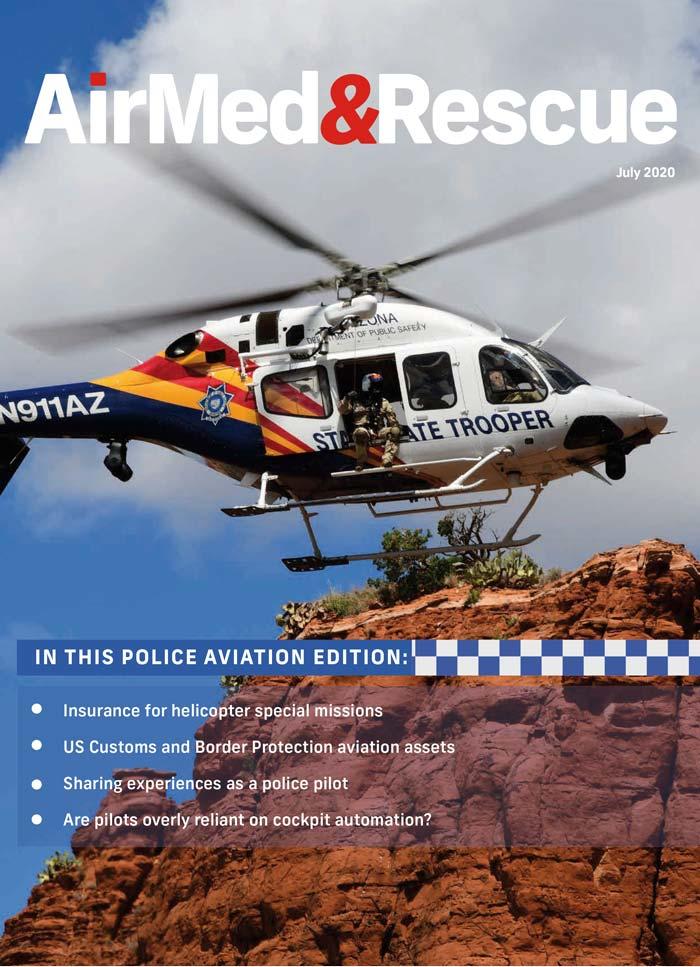
July 2020
Issue
In this Police Aviation issue:
Provider Profile: San Diego Police Department Air Support Unit
Aerial assets of the US Customs and Border Patrol
The cost of special missions insurance
Sharing experiences and CRM as a police aviator
Automatic reactions: When technology isn’t an asset
Multi-agency management: Designing, creating and building a response system
Case Study: AirLec Ambulance
Interview: Cameron Curtis, AAMS President and CEO
Rick London
Rick London is a former Army Air Corps helicopter pilot and technician. Currently, he is a Police Line Training Captain and the Human Factor / Crew Resource Manager for the UK’s National Police Air Service. He holds the post of Deputy Chair for the Civil Aviation Authority’s’s Flight Crew Human Factors Advisory Panel, a panel of predominately volunteers.
